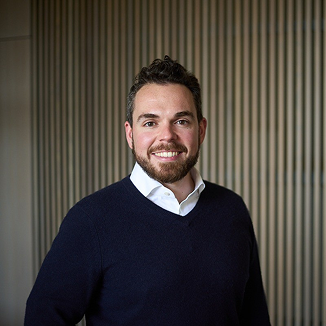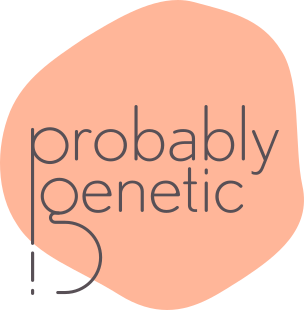About Probably Genetic
Built to detect 4,000+ rare diseases and trusted by over 230,000 patients
Probably Genetic is a San Francisco–based health tech company that helps people with rare diseases get diagnosed faster. AI predictions and free at-home genetic tests, along with remote results and counseling, identify hard-to-diagnose conditions, helping more than half of tested individuals receive a meaningful diagnosis.
The challenge
400M people, one huge gap: Most patients with severe genetic diseases don’t know why they’re sick
Probably Genetic was founded to solve a critical healthcare problem: families facing long, uncertain paths to diagnosis for rare genetic diseases. Many of these families turn to the internet out of desperation, seeking answers where the healthcare system falls short.
“There’s about 400 million people on the planet with severe genetic diseases,” said CEO and Co-Founder Lukas Lange. “At least half of them are really sick but don’t know why.”
Even before they had a product, the Probably Genetic team used Slack to ideate and collaborate. As the company grew, Slack evolved from a space for early brainstorming into the operational backbone for everything from marketing and patient support to testing logistics and data delivery. Without this central place to connect, align, and act, that accelerated growth could have introduced friction and slowed their ability to serve patients and partners.

“The second a patient lands on our site, we get a notification in Slack. When they submit info, are selected for testing, and when their genome is sequenced and analyzed… it’s all in Slack. We even track test kit shipping logistics in Slack.”
How Probably Genetic works better with Slack
Slack brings every step of the workflow into one place, from first click to final diagnosis
Slack powers every stage of Probably Genetic’s workflows, from the first patient interaction to the final diagnostic result. Key alerts, such as form submissions, AI phenotyping and test kit logistics, automatically route to Slack, ensuring teams stay aligned in real time.
“Probably Genetic is HIPAA-compliant, with all data encrypted end to end,” said CTO Lukas Burger. “We use an HIPAA de-identification layer to ensure that sensitive patient data never leaves our platform, including when we receive patient updates via Slack.”
When it comes to logistics, Slack helps them catch problems before they escalate. A custom integration with their various labs posts updates about kit deliveries — successful or failed — directly into relevant channels. “We get notified in Slack if a kit can’t be delivered,” said Lange. “Catching that matters. Each missed kit could mean a lost patient and potentially millions in revenue for a biopharma partner.”
Slack also acts as a unifying layer across tools. Instead of juggling dashboards or logging into different tools, the team gets all their key alerts in Slack, from product issues and uptime checks to task updates from Linear.
Slack is also the place where their mission feels real. Mila, a young girl with Batten disease, spent years undiagnosed after doctors dismissed her symptoms. Her story — shared by her mother online — helped inspire the founding of Probably Genetic. So when the team delivered its first rare disease diagnosis, it carried extra weight: The confirmation came through a Slack alert, and the entire team knew instantly.
“We built custom alerts that flag when we find a match for a specific disease,” said Lange. “The moment the first one popped up, the channel lit up. People reacted instantly and celebrated together. It felt like a moon landing.”

“I’m excited to see how AI in Slack can help us move faster, whether it’s summarizing threads, triggering code changes through agents like Cursor, or building automated workflows from notifications.”
What’s next
Growing fast and using Slack to help streamline complexity at scale
As Probably Genetic scales, it’s continuing to expand its use of automation and AI, both in its patient-facing platform and internal operations. The team is particularly interested in AI in Slack’s potential to streamline day-to-day work, like surfacing context from long threads and building faster workflows based on real-time alerts.
The team is also excited to explore Agentforce to automate more of their workflows — like placing lab orders or exchanging emails with partners that lack modern APIs — so they can take action on alerts directly within Slack.
“The most important thing for us is making our AI better so we can help more patients,” said Lange. “That means collecting more types of data — photos, lab reports, EHRs — so we can create a perfect characterization of what someone has instantly.”
Slack remains foundational to that evolution: a central place for tracking workarounds, surfacing issues early, and maintaining visibility across a growing, mission-critical operation. With more complexity on the horizon, Probably Genetic is committed to keeping communication fast, information centralized, and the mission clear — for patients, partners, and every team member involved.















